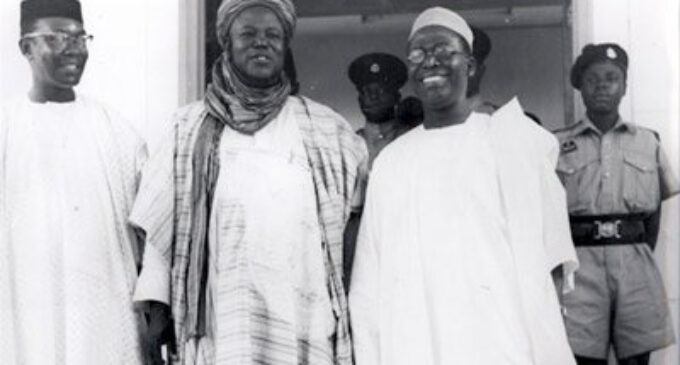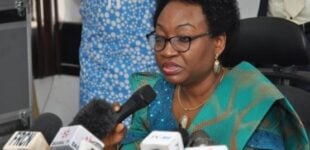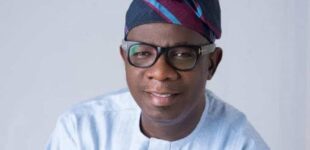We keep missing the point

I’ve been reliably informed that I irritated a number of people in two recent articles, one titled “True Federalism and Other Fallacies” and the other “Restructuring and the 1963 Constitution”. I can understand the frustration of many southerners: they feel trapped in a country with people they would rather not live with. The events surrounding the ascension and descension of President Jonathan left many hurt, bitter and angry. The campaign for restructuring and balkanisation has been heightened since President Muhammadu Buhari came to power: many southerners insist he has not painted himself in glory with his pattern of appointments and pronouncements.
In those articles, I did not say people should not campaign for restructuring. That’s above my paygrade. My plea is simple: stick to the facts and stop lying to children. Many Nigerians have been misled with falsehoods and fallacies. In one article, I argued that “true federalism” is a fallacy, that what we have are variants of federalism as no two countries practise the system the same way. Each federal constitution decides how powers are shared — with currency, diplomacy and military usually centrally controlled. I pointed out that fiscal federalism does not mean resource control. To the contrary, it is a theory about fiscally balancing the federation so that poorer parts don’t suffer.
In my other article, I compounded things by quoting a section of the famous 1963 Constitution to debunk the fallacy that regions were granted resource control in the first republic. Mines and minerals, including oilfields, oil mining, geological surveys and natural gas, were all on the Exclusive Legislative List and squarely under the jurisdiction of the federal government. I also noted that the economic mainstays of the regions were cocoa, groundnuts and palm produce — which were agricultural products, not mineral resources. I argued that under the 1999 Constitution, states are still allowed to repeat the agricultural feats of 1963 without having to worry about derivation.
Perhaps, more annoyingly, I recalled the position of a professor of law and senior advocate of Nigeria who said the 13 percent derivation on “revenue” under 1999 Constitution is bigger than the 50 percent derivation on “rents and royalties” under the 1963 Constitution. Although I am still carrying out further research to verify the professor’s assertion (it’s been difficult getting data on revenues from royalties and rents in 1963-66 but I will not give up), I did argue that royalty is just a fraction of the revenue that the Nigerian federation earns from oil. I listed other oil revenue items under today’s expansive taxation regime which was not in place in 1963 when petrodollar was little.
I did also say that the biggest income for the federation today is from sale of oil and gas, not rents or royalties. Rents are paid to the federation for the land on which oil is being drilled. Royalties, on the other hand, are usually tied to thresholds. For instance, the current offshore royalty for fields producing less than 15,000bpd is 10 percent, while price-based royalties are only paid if oil sells above $35/barrel. The national assembly is trying to reduce offshore royalties to 7.5 percent and raise the price threshold to $50/barrel. This will further reduce income from royalties. Conversely, 13 percent derivation is a direct and flat charge on revenue from oil produced in a particular state.
In my series of articles over the years, my aim has always been to make certain points which we keep missing in the campaign for the restructuring of Nigeria. One, we keep blaming the 1999 Constitution for what is clearly the failing of its operators. Chapter II says that “national integration shall be actively encouraged, whilst discrimination on the grounds of place of origin, sex, religion, status, ethnic or linguistic association or ties shall be prohibited” and that the state shall “control the national economy in such manner as to secure the maximum welfare, freedom and happiness of every citizen on the basis of social justice and equality of status and opportunity”. Is this bad?
The constitution further provides that the sanctity of the human person shall be recognised and human dignity shall be maintained and enhanced; that governmental actions shall be humane; and that exploitation of human or natural resources in any form whatsoever for reasons, other than the good of the community, shall be prevented. Pray, how on earth can anybody deride the ENTIRE document, falsely claiming that it was not written by “We the People”? Was it written by “We the Goats”? What else can the all-knowing “We the People” write that will re-invent the wheel? If there are loopholes, why not fix them? Is that not why a constitution is a living document?
Two, there are so many opportunities provided by the 1999 Constitution which we have conveniently ignored because we are obsessed with desecrating and discrediting it. I pointed out a few things last week. As we all know, agriculture is on the concurrent list, which means the federal government and states are free to make policies on it for the benefit of the citizens. In the pre-Independence era and the first republic, cocoa, palm produce and groundnuts — along with tax revenue — were what Dr Michael Okpara, Dr Nnamdi Azikiwe, Sir Ahmadu Bello, Chief SL Akintola and Chief Obafemi Awolowo utilised to develop their regions. It is an open fact, I suppose.
Under the 1999 Constitution, there is no single provision stopping states from promoting agriculture and industry with smart policies. As Fela would say, “Ground no dey shake; na your leg weak.” States can use rice, pineapple, cassava, tomato, sorghum, cocoa, oil palm, cotton, groundnuts, ginger and sesame to drive economic growth and development but some would rather resort to work avoidance by pursuing the narrow argument that the 1999 Constitution was not written by “We, the Only Wise” and it is anti-people and anti-federalism and only fit for the shredder. It is so easy for politicians to blind the people with ethnic and sectional emotions just to paper over incompetence.
I have gone to great lengths in recent years to explain how states can get value from agriculture, which has nothing to do with derivation or Abuja. In my previous article, I briefly touched on what states can do to diversify their revenue base. South-west states, under the DAWN Commission, got a telecoms licence for O’Net in 2002. Does anyone still remember? Telecoms is on the exclusive list, by the way. This shows us what is possible under the 1999 Constitution. In fact, under the constitution, Osun or Benue or any other state can incorporate an oil company and start competing for oil blocks with Shell and Aramco anywhere in the world. All we know to do, unfortunately, is moan and whine.
Three, even the items that are on the exclusive list, what exactly is the problem? Railway is on the list but Lagos is building a rail line. Heaven has not fallen. Rivers was undertaking a light rail project years ago. Kano state is planning one. Aviation is on the exclusive list but only God knows how many states have or are building airports today. Power is on the exclusive list but many states are into power projects. The one built by Asiwaju Bola Ahmed Tinubu as governor of Lagos state between 1999 and 2007 is the one sustaining many factories in Lagos today. All these achieved under the 1999 Constitution! So, what exactly is our problem? Why do we keep heating up Nigeria for nothing?
Four, we have this thinking that more allocation means more development. By all means, the oil-producing areas deserve to enjoy the benefits of being the region where Nigeria’s biggest source of public revenue and forex is mined. If I had my way, I would even ask them to keep 100 percent of the oil revenue. It is their luck that they have oil in the bellies of their lands. But we keep making the mistake that more derivation revenue will translate to more development. This is partly driving the agitation for restructuring and the so-called fiscal federalism. From experience, more revenue has not translated to more competence or more development. But we just keep missing the point.
Finally, let me ruffle feathers again. Awo is being used as the poster boy of the “restructuring” campaign. He is always quoted to have said: “Nigeria is not a nation. It is a mere geographical expression.” Sorry, but this is a clever manipulation of Awo’s thoughts on page 48 of his book, ‘Path to Nigerian Freedom’. Under the chapter, ‘Towards Federal Union’, this is the full context: “If rapid political progress is to be made in Nigeria, it is high time we were realistic in tackling its constitutional problems. Nigeria is not a nation. It is a mere geographical expression. There are no ‘Nigerians’ in the same sense as there are ‘English’, ‘Welsh,’ or ‘French’.” And this was in 1947!
In truth, what Awo was advocating was nation-building. He was not asking for Oduduwa Republic. By 1968, he had this to say about the Nigerian project: “It is incontestable that the British not only made Nigeria, but also [handed] it to us whole on their surrender of power. But the Nigeria which they handed over to us had in it the forces of its own disintegration. It is up to contemporary Nigerian leaders to neutralise these forces, preserve the Nigerian inheritance, and make all our people free, forward-looking and prosperous.” He had, obviously, moved beyond the federalism debate he wrote about in 1947, but people make it look like he campaigned for federalism all his life.
Actually, Awo twice contested to be president — in 1979 and 1983 — under the “military” 1979 Constitution, which is the same document we updated and renamed 1999 Constitution. Were Awo to be president of Nigeria today using the same 1999 Constitution, you can bet he would do well. But we have been tuned to think it is constitutions that develop a society. Constitutions can NEVER take the place of visionary, competent and patriotic leadership. That is why virtually all systems deliver economic progress: liberal democracy, dictatorship, presidentialism, parliamentarism, federalism, unitary system, name it. But I accept that it is too hard for some people to understand.
AND FOUR OTHER THINGS…
YORUBA NATION
After the destruction brought upon Lagos state in the wake of the End SARS protests in October 2020, it is now glaring that the police have developed a morbid fear for public protests in the nation’s commercial capital. Otherwise, I see no reason for the show of force in the state yesterday to prevent Chief Sunday Igboho’s rally for Yoruba “nay-son” from holding. There is something we still need to get clearly: Nigerians have a fundamental right to demonstrate and agitate, as long as it is peaceful and no laws are broken. The police should not become so hysterical that public demonstration will become criminalised. The emphasis should be on law and order. Civil.
KANU CONUNDRUM
When news broke that Mazi Nnamdi Kanu, leader of the separatist Indigenous People of Biafra (IPOB), had been re-arrested and brought back to the country to continue his trial for treason, I was not particularly excited. Things are so delicate, politically, in Nigeria today that we do not need anything that would complicate the fragility. But I agree that the Nigerian state has to assert its sovereignty and not show weakness. Legitimate questions are being asked about how and where he was re-arrested, and if any international laws were indeed broken. Whatever the case may be, we should now be demanding due process, respect for his dignity and fair judicial process. Justice.
HOPE RISING?
Months ago, it was as if Nigeria was about to melt into hell. Some men of God had already lost faith and started preaching “Plan B” to the children of God. So many of my friends, some of them diehard optimists, called me and said it was looking gloomy and they were planning to leave the country. The insecurity has apparently reduced a bit, even if not significant enough to rekindle wholesale optimism. At least, we have some breathing space. The death of Abubakar Shekau, the Boko Haram leader, and the reduction in attacks on police stations and prisons in the south-east are big wins, but we would feel much more relieved if the bandits and criminal herders are reined in. Progress.
POUNDED PDP
Governor Bello Mutawalle of Zamfara has defected from the Peoples Democratic Party (PDP) to the All Progressives Congress (APC). From controlling 31 states as of June 2007, the PDP has been reduced to having just 13 states today — with more of its governors expected to jump fence in the weeks and months ahead. How are the mighty fallen! This was a party that once prided itself as the biggest in Africa, with an arrogant promise to rule Nigeria for 60 years. APC is the beneficiary and I can smell their own arrogance all over the place. For those of us on the sidelines, this is normal service. APC is PDP and PDP is APC. Politicians will never stop jumping back and forth. Opportunists.















You are right, there’s not much that are wrong with most of our policy documents including the Constitution but those implementing it No matter how good a document is if you don’t have people who will zealously implement it, then it will look as if the document is the issue but it’s not